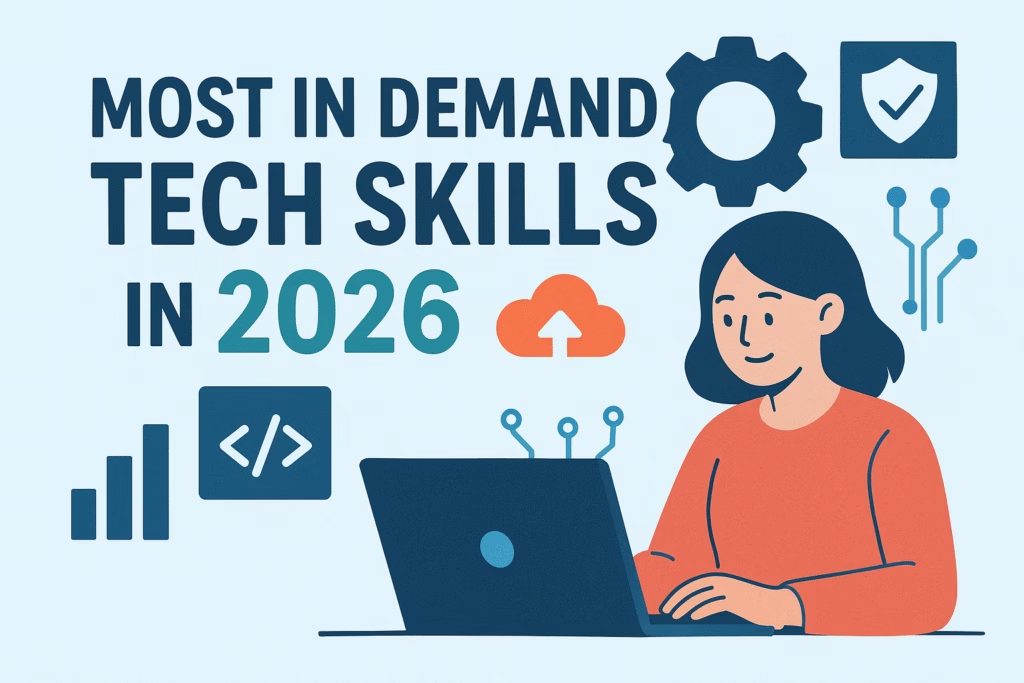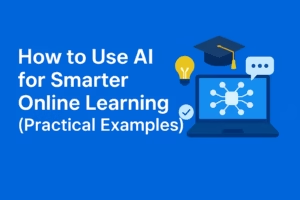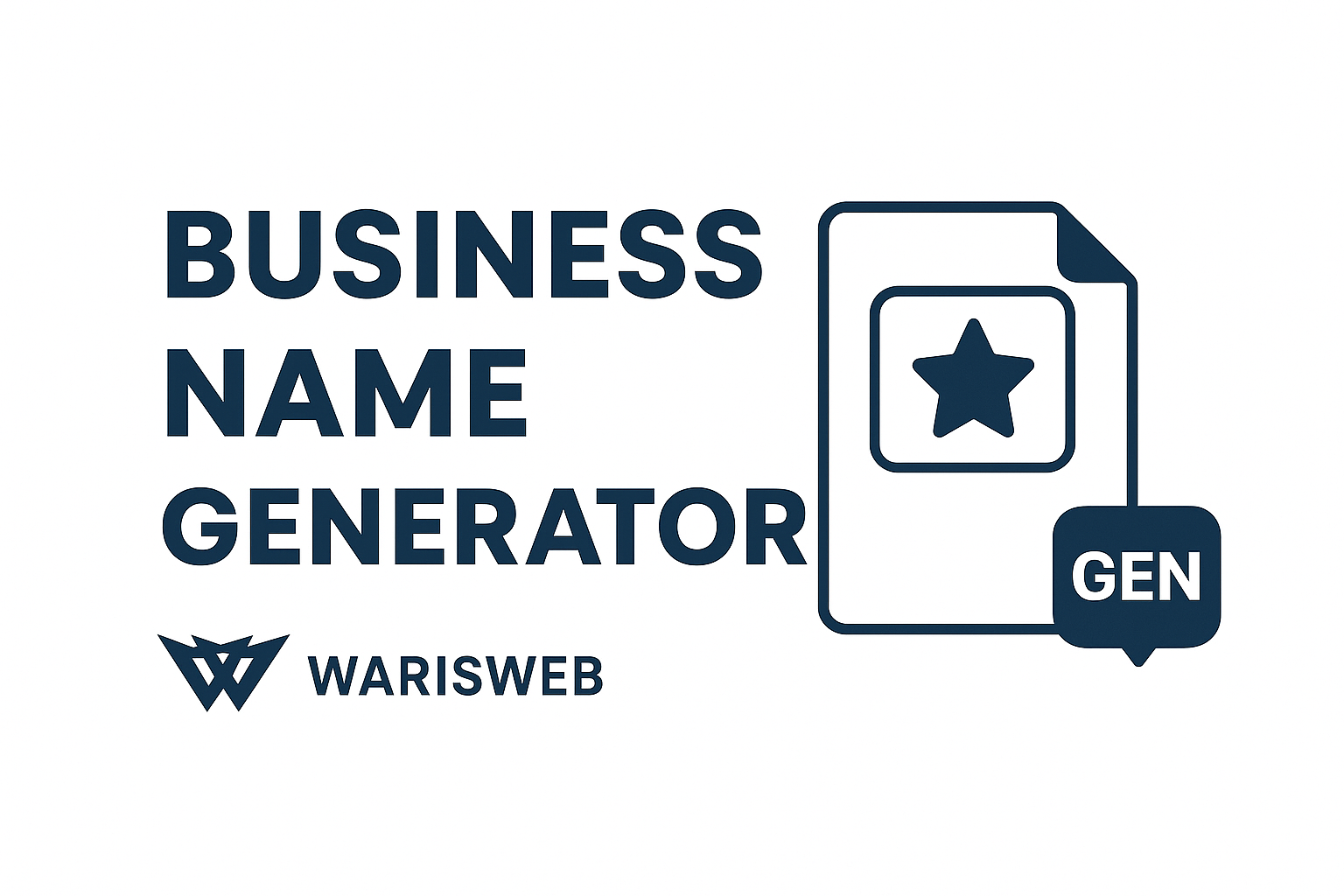Most In-Demand Tech Skills in 2026

If you’ve been in tech for more than a couple of years, you know the drill: what was cutting-edge yesterday is table stakes today, and tomorrow? Well, tomorrow demands something entirely new.
Technology evolves at a speed that can feel relentless. Whether you’re just starting your career, pivoting from another field, or trying to stay relevant in your current role, knowing which tech skills will actually matter in 2026 isn’t just helpful—it could be the difference between landing that dream job and watching opportunities pass you by.
The good news? We’re not talking about vague predictions here. AI and big data are at the top of the list, followed by networks and cybersecurity and technological literacy, according to the World Economic Forum’s latest analysis. The landscape is becoming clearer, and if you position yourself strategically now, you’ll be exactly where employers need you to be.
Let’s cut through the hype and talk about what skills will genuinely open doors in 2026.
Why Staying Updated with Tech Skills Matters
Here’s the reality: we’re in the middle of a massive digital transformation that’s touching every industry you can think of. It’s not just tech companies anymore—finance, healthcare, retail, manufacturing, even agriculture are all becoming tech-dependent businesses.
Employment in computer science and IT is projected to grow 13% through 2026, outpacing the average for all occupations. That’s significant growth, but here’s the catch: it’s not evenly distributed across all tech skills. Some areas are exploding with opportunity, while others are stagnating or even declining.
Employers value adaptability and future-ready skills. The companies winning right now aren’t necessarily the ones with the most people—they’re the ones with the right skills. 87% of technology and IT leaders typically offer higher salaries to candidates with specialized skills than to those without them in the same role. That’s not a small difference we’re talking about; specialized skills can literally mean tens of thousands of dollars more per year.
And speaking of money—higher salary opportunities for in-demand skills are real and substantial. Principal-level Product Managers earn $295K, Staff Data Scientists $285K, and Principal Software Engineers $245K, with total compensation often 40-60% above base salary. Even at more junior levels, having the right skills can dramatically impact your earning potential.
The message is clear: staying current isn’t optional anymore. It’s the baseline for staying employed, and staying ahead is what gets you promoted.
Top Most in Demand Tech Skills in 2026
Let’s get into the specifics. These aren’t just buzzwords or passing trends—these are the skills that hiring managers are actively searching for and willing to pay premium salaries to get.
Artificial Intelligence & Machine Learning
No surprise here—AI is dominating the conversation, and for good reason. But it’s not just about knowing AI exists; it’s about understanding how to build with it, deploy it, and use it to solve real business problems.
AI-driven automation and generative AI growth are reshaping entire industries. According to Gartner, by 2026, approximately 90% of digital content processes will involve generative AI. Think about that for a second—90%. If you’re not working with AI in some capacity, you’re increasingly going to be in the minority.
But here’s what’s interesting: the roles are diversifying beyond traditional machine learning engineers. We’re seeing demand for:
- AI Engineers who can integrate AI systems into existing infrastructure
- ML Specialists focused on model optimization and training
- Prompt Engineers (yes, really) who understand how to get the best results from large language models
- AI Ethics Specialists ensuring responsible deployment
The key isn’t just knowing the algorithms—it’s understanding how to apply them to create actual value. Companies don’t need theoretical knowledge; they need people who can ship AI products that work.
Data Analytics & Business Intelligence
Data has been “the new oil” for years now, but in 2026, it’s more like oxygen—absolutely essential and everywhere. The difference now is that data-driven decision-making has moved from being a competitive advantage to being the core business strategy.
Every company is drowning in data. The competitive edge comes from actually understanding what it means and using it to make better decisions faster than your competitors.
Tools you need to know: Power BI, Tableau, Python, and SQL are non-negotiables. But beyond the tools, you need to understand how to tell stories with data—how to translate complex analytics into insights that non-technical stakeholders can actually use to make decisions.
Data Scientists and related roles are expected to see faster-than-average growth rates, and the compensation reflects that demand. But here’s a reality check: being able to run a regression isn’t enough anymore. You need to understand the business context, ask the right questions, and communicate findings in ways that drive action.
The analysts who thrive are the ones who can bridge the technical and business worlds—who speak both SQL and “executive.”
Cybersecurity & Ethical Hacking
If you thought cybersecurity was important before, just wait. With remote work becoming permanent, IoT devices proliferating, and cloud adoption accelerating, the attack surface for cyber threats has exploded.
Information Security Analysts earn an average of $107,427, and some experienced workers can earn up to $161,878. Even more telling, 37% of tech managers have increased starting pay for cybersecurity roles. When that many companies are boosting pay, you know there’s genuine scarcity.
Skills that matter:
- Penetration testing and vulnerability assessment
- Cloud security (AWS, Azure, GCP security frameworks)
- Zero-trust architecture implementation
- Incident response and forensics
- Security automation and orchestration
The interesting shift here is that cybersecurity is no longer just about defense—it’s about being proactive. Companies want security professionals who can think like attackers, who understand not just how to block threats but how to anticipate them.
And with regulations like GDPR, CCPA, and emerging AI governance frameworks, the compliance aspect of cybersecurity is becoming increasingly important. If you understand both the technical and regulatory sides, you’re incredibly valuable.
Cloud Computing & DevOps
The “cloud-first” approach isn’t a strategy anymore—it’s just how businesses operate. If you’re not comfortable in the cloud, you’re going to have a hard time finding relevant work in 2026.
Platforms you need to know: AWS remains the dominant player, but Google Cloud and Microsoft Azure are growing fast. The smart move? Get deep expertise in one, but have working knowledge of the others. Multi-cloud strategies are becoming standard, and companies need people who can navigate between platforms.
But cloud skills alone aren’t enough. The real magic happens when you combine cloud expertise with DevOps practices. Companies want infrastructure that’s not just in the cloud, but that can be deployed, scaled, and managed efficiently through automation.
Key DevOps concepts:
- CI/CD pipeline design and management
- Infrastructure as Code (Terraform, CloudFormation)
- Container orchestration (Kubernetes)
- Monitoring, logging, and observability
- Site Reliability Engineering (SRE) principles
The DevOps engineers who command top salaries are the ones who can reduce deployment times from weeks to minutes, who can ensure 99.99% uptime, and who can scale systems seamlessly as demand grows.
Blockchain & Web3 Development
Yes, crypto had its ups and downs (mostly downs recently), but blockchain technology is maturing beyond cryptocurrency hype into genuinely useful applications.
Beyond crypto: Smart contracts are automating complex business processes, decentralized apps (dApps) are creating new models for software distribution, and NFT ecosystems—despite the skepticism—are finding legitimate use cases in digital identity, supply chain verification, and intellectual property management.
The interesting development is how blockchain is intersecting with other technologies. Quantum computers could break existing cryptographic algorithms, posing risks to blockchain networks, which means there’s growing demand for blockchain developers who understand both current implementations and quantum-resistant cryptography.
Is this the hottest skill on this list? No. Is it oversaturated with developers who jumped in during the crypto boom? Probably. But the genuine applications are growing, and developers who understand decentralized systems architecture will have opportunities—especially in supply chain, healthcare data management, and financial services.
Software Development & Low-Code Platforms
Traditional software development isn’t going anywhere, but the landscape is shifting in interesting ways.
Python leads with 28% growth in job postings, followed by Go with 41% growth and Rust with 67% growth. Notice what’s happening there? Python remains king for data science, automation, and general-purpose programming. But the high-growth languages are the ones optimized for performance, concurrency, and systems programming.
Why this matters: As systems get more complex and scale requirements increase, languages like Go and Rust that offer both performance and safety are becoming increasingly valuable. If you’re learning to code now, Python is still the right starting point—but consider adding Rust or Go as your second language.
Low-code platforms are the other interesting trend. Tools like OutSystems, Mendix, and Microsoft Power Apps are letting non-developers build functional applications. Does this mean traditional coding is dead? Absolutely not. But it does mean that developers who can work with low-code platforms—either building on them or creating custom components for them—have an additional avenue for value creation.
The future likely involves a hybrid approach: low-code for rapid prototyping and business-user tools, traditional code for complex, performance-critical systems.
UI/UX Design & Human-Centered Tech
Here’s something that gets overlooked in tech skills discussions: as technology becomes more powerful and complex, the human interface becomes even more critical.
Building intuitive, accessible digital experiences isn’t just nice to have—it’s a competitive necessity. Users have zero patience for confusing interfaces or inaccessible design. If your product isn’t immediately intuitive and usable by diverse audiences, you’re losing customers to someone whose product is.
The best UI/UX designers in 2026 understand:
- Accessibility standards (WCAG compliance isn’t optional)
- Design systems and component libraries
- User research and testing methodologies
- Interaction design and microanimations
- Responsive and adaptive design across devices
But there’s a deeper shift happening: human-centered tech isn’t just about making things pretty or easy to use. It’s about designing with ethics in mind—considering the psychological impact of your designs, avoiding dark patterns, and creating technology that genuinely improves people’s lives rather than exploiting their attention.
Designers who can combine aesthetic skill with psychological insight and ethical consideration are increasingly valuable. Companies are learning (sometimes the hard way) that user trust is hard to earn and easy to lose.
Quantum Computing (Emerging)
Okay, let’s be realistic: most people reading this aren’t going to be quantum computing developers in 2026. The field is still highly specialized, requires advanced physics and mathematics knowledge, and the applications are limited to specific use cases.
But—and this is a significant but—quantum systems are already operating at over 100 qubits and aiming for 10,000 by 2026. This technology is moving from theoretical to practical faster than most people realize.
Early adoption is happening in: research institutions, financial modeling and risk analysis, drug discovery and molecular simulation, and cryptography (both creating and breaking encryption).
Should you drop everything and learn quantum computing? Probably not, unless you’re already in a related field. But should you be aware of it and understand its implications? Absolutely. By 2026 or 2027, quantum machines may be capable of breaking elliptic curve cryptography—the backbone of blockchain security.
If you’re working in cryptography, cybersecurity, or financial systems, understanding the quantum threat landscape is becoming necessary. For everyone else, it’s worth staying informed about developments because quantum breakthroughs could create entirely new job categories seemingly overnight.
How to Learn These Skills
Knowing what skills you need is one thing. Actually acquiring them is another. The good news is that tech education has never been more accessible or more varied in its delivery methods.
Online certifications through platforms like Coursera, edX, and Udemy offer structured learning paths for almost every skill on this list. The quality varies, but the best courses are genuinely excellent—often taught by industry practitioners or even the people who built the technologies you’re learning.
The key with online courses is completion. Don’t become a course collector. Pick one, finish it, build something with it, then move to the next. Employers care more about what you can do than how many certificates you have.
Bootcamps and workshops offer intensive, immersive learning experiences. They’re expensive and demanding, but the good ones have high placement rates and strong industry connections. If you’re career-switching or need to upskill quickly, a reputable bootcamp can compress months of learning into weeks.
Research thoroughly though—the bootcamp space has some excellent programs and some that are basically diploma mills. Look for job placement rates, instructor credentials, and alumni reviews.
Hands-on projects & internships are non-negotiable. You can watch every tutorial and read every textbook, but you don’t really learn until you’re building something real and debugging problems at 2 AM.
Start with small projects that solve actual problems—even if they’re problems only you have. Build a tool, automate something annoying, analyze a dataset you care about. Then make your projects public on GitHub. Hiring managers want to see evidence that you can actually build things, not just talk about building things.
Contribute to open source projects if you can. It gives you real-world experience working with production code, teaches you collaboration skills, and builds your network. Plus, many open source contributions are visible on your GitHub profile, which is increasingly the first place technical recruiters look.
The honest truth about learning tech skills: It never stops. The specific technologies will change, but the skill of learning new technologies is what actually matters long-term. Stay curious, build consistently, and don’t wait until you feel “ready” to start applying for jobs. You’ll learn more in your first three months of actual work than in a year of courses.
Conclusion
The most in-demand tech skills of 2026 revolve around AI, data, security, and emerging technologies—but with a twist. It’s not just about technical expertise anymore. The professionals who’ll thrive are the ones who can combine technical skills with business understanding, ethical consideration, and the ability to keep learning as technology evolves.
Technical skills are becoming commoditized, which might sound alarming, but it’s actually liberating in a way. It means that while technical skills are necessary, they’re not sufficient. The combination of strong technical foundation, business acumen, communication skills, and ethical judgment is what creates true career security.
Here’s what this means practically:
- If you’re starting out, focus on foundational skills first—programming, data, and cloud fundamentals
- If you’re mid-career, specialize deeply in one area while maintaining breadth in adjacent skills
- If you’re senior, your value increasingly comes from your ability to architect solutions, mentor others, and translate between technical and business contexts
87% of tech companies now hire globally for remote positions, which means two things: more opportunity than ever, but also more competition. The skills gap is real, but it’s specific—companies can’t find people with the right combinations of skills, not just any warm body who can code.
By investing in these skills now—particularly AI/ML, data analytics, cybersecurity, and cloud computing—you’re positioning yourself for a future-proof career in the digital economy. But remember: the goal isn’t to learn everything. It’s to develop deep expertise in areas you’re genuinely interested in, maintain awareness of adjacent technologies, and cultivate the meta-skill of continuous learning.
The future belongs to the adaptable. The tech skills of 2026 matter, but the ability to learn the skills of 2027, 2028, and beyond matters more.
Frequently Asked Questions?(FAQ's)
AI and machine learning will continue to dominate. The World Economic Forum ranks AI and big data as the fastest-growing skills, followed closely by cybersecurity and cloud computing. However, “most in demand” varies by industry and region—data analytics might matter more for business roles, while cybersecurity is critical for financial services and healthcare.
No. While degrees can help (especially for certain companies and roles), many online certifications and bootcamps are widely accepted in the tech industry. What matters most is demonstrable ability—portfolio projects, GitHub contributions, and real-world experience often carry more weight than formal credentials. That said, some companies still filter by degrees for certain positions, particularly at entry level.
Absolutely. Technical skills might get you the interview, but soft skills get you hired and promoted. Problem-solving, communication, collaboration, and adaptability complement technical expertise. In fact, as technical skills become more democratized through AI tools and better education, human skills like creativity, empathy, and leadership become even more differentiating. The best tech professionals are the ones who can explain complex concepts simply, work effectively in teams, and adapt to changing requirements.
Start with foundational skills that apply broadly: basic coding with Python or JavaScript, fundamental data analysis, understanding of cloud computing concepts, and version control with Git. These skills create a platform you can build on regardless of which direction you specialize later. Python is particularly versatile—useful for web development, data science, automation, and AI. Once you’re comfortable with basics, let your interests guide your specialization into AI, security, DevOps, or other areas.
Share This Post:
Previous Articles:

How to Pick the Right Online Certification for Your Career Path







